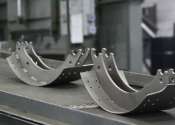An economy (or "the economy") is the realized economic system of a country or other area. It includes the production, exchange, distribution, and consumption of goods and services of that area. The study of different types and examples of economies is the subject of economic systems. A given economy is the end result of a process that involves its technological evolution, history and social organization, as well as its geography, natural resource endowment, and ecology, among other factors. These factors give context, content, and set the conditions and parameters in which an economy functions.
Today the range of fields of study exploring, registering and describing the economy or a part of it, include social sciences such as economics, as well as branches of history (economic history) or geography (economic geography). Practical fields directly related to the human activities involving production, distribution, exchange, and consumption of goods and services as a whole, range from engineering to management and business administration to applied science to finance. All kind of professions, occupations, economic agents or economic activities, contribute to the economy. Consumption, saving and investment are core variable components in the economy and determine market equilibrium. There are three main sectors of economic activity: primary, secondary and tertiary.
The word "economy" can be traced back to the Greek word "one who manages a household", derived from οἴκος, "house", and νέμω, "distribute (especially, manage)". From οἰκονόμος "of a household or family" but also senses such as "thrift", "direction", "administration", "arrangement", and "public revenue of a state". The first recorded sense of the word "economy", found in a work possibly composed in 1440, is "the management of economic affairs", in this case, of a monastery. Economy is later recorded in other senses shared by οἰκονομία in Greek, including "thrift" and "administration". The most frequently used current sense, "the economic system of a country or an area", seems not to have developed until the 19th or 20th century.









